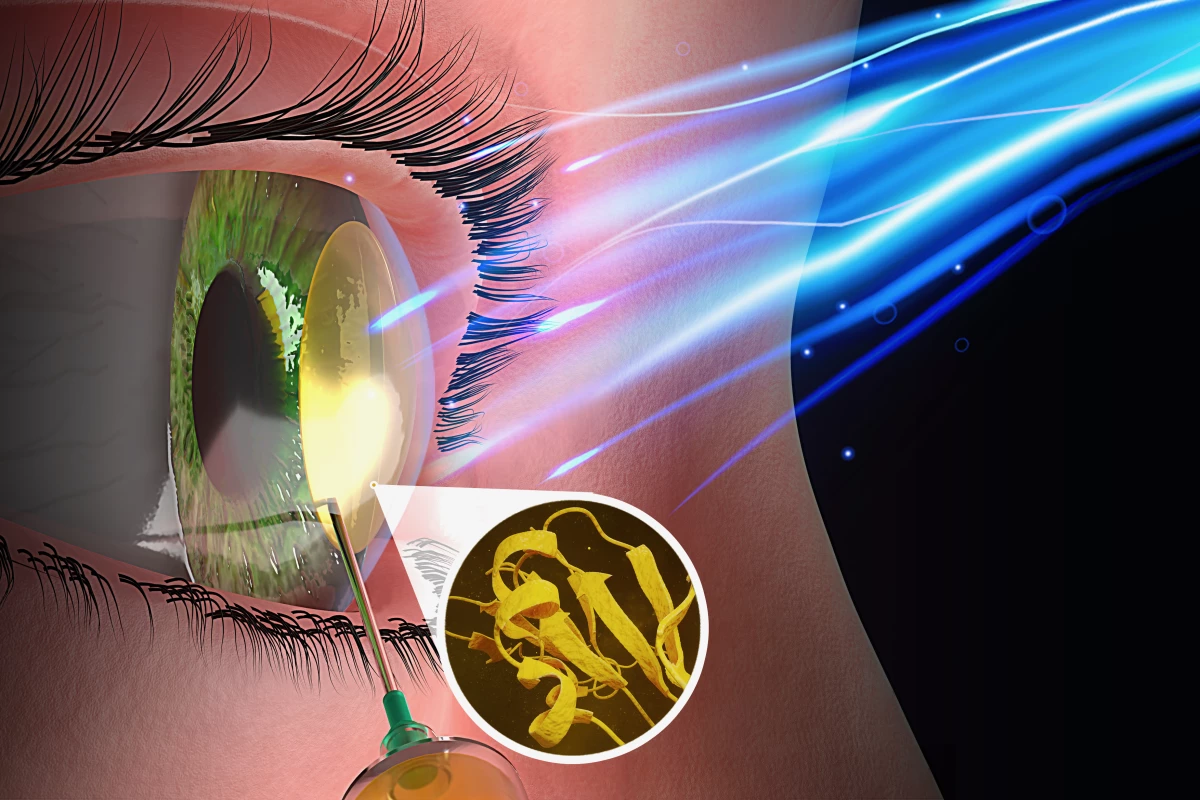Caused by bacterial infections or diseases such as keratoconus, thinning of the cornea can lead to blindness if not addressed. An experimental new injectable material could help keep that from happening, by thickening compromised corneas when triggered by blue light.
Currently, the best treatment for a thinning cornea is simply to replace it with an undamaged one harvested from a cadaver. Unfortunately, though, there is a worldwide shortage of donor corneas, meaning that only a small number of people can receive them. Additionally, cornea transplant surgery is quite invasive, plus post-surgical complications may occur.
With these and other drawbacks in mind, a University of Ottawa team led by Dr. Emilio Alarcon created the cornea-thickening biomaterial. Its key ingredients are short peptides (chains of amino acids) along with naturally occurring polymers known as glycosaminoglycans.
In a relatively simple procedure, a tiny pocket is surgically created in the cornea, which the material is then injected into. When the injected material is subsequently exposed to pulses of low-energy blue light, it hardens into a corneal-tissue-like 3D structure within a matter of minutes, after which it turns transparent.
The technology has so far been tested on live rats, which didn't experience any side effects, plus it's been demonstrated on an extracted pig cornea. Testing on larger animals will be required next, after which human trials may commence.
"Our material was engineered to harvest the blue light energy to trigger the on-the-spot assembling of the material into a cornea-like structure," said Alarcon. "Our cumulative data indicates that the materials are non-toxic and remain for several weeks in an animal model. We anticipate our material will remain stable and be non-toxic in human corneas."
A paper on the research was recently published in the journal Advanced Functional Materials.
And should you be wondering, other scientists from the University of Ottawa – along with teams at Newcastle University and the Fraunhofer Institute for Applied Polymer Research – are addressing the donor cornea shortage by developing synthetic corneas.
Source: University of Ottawa




